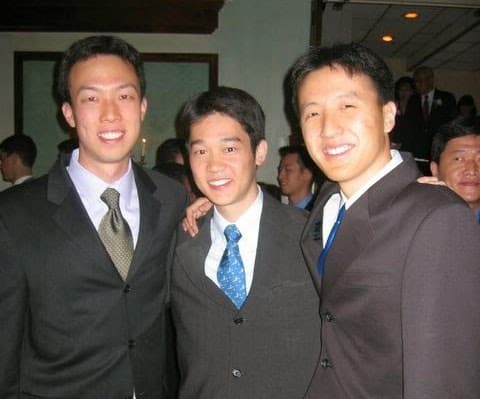I thank my lucky stars every morning I walk into the office, as I’m pretty sure I have the best job on the planet. A big part of my job is building an environment in which incredibly talented sales professionals can grow substantially as both professionals and individuals. Working with my team, I often hear, “What do you wish you could tell your 27-year-old self?” After nearly two decades building teams, I’ve come to realize a few key lessons.
1. “You paid Yale to teach you. We pay you to work here.”
These words stung when I first heard them from one of my first managers. Yet, there’s a reason we pay for college: its sole existence is our development. In school, growth and sequential graduation are pre-programmed, so if we simply follow the prescriptive path and meet expectations, then we are regularly and comfortably promoted at the exact same time as all of our peers.
The framework is turned upside down when we become working professionals, where we’re paid to excel at a job, and there is no prescriptive set of steps that guarantee we get promoted to the next role, nor a timeline for doing so. Any development opportunities outside our core role are a privilege. Thus, it’s up to us to take full ownership of our growth––all while continuing to outperform in our core role.

2. Growth mindset trumps talent
Starting my first sales role, I was petrified. Many colleagues had been in the investment industry for years, others were incredibly charismatic, and some had a commanding presence and brilliant confidence. I was a recently graduated engineer who had never even had a lemonade stand. While I wasn’t a natural seller, my plan was simple: work harder than everyone else (the one thing I fully controlled), while I learned my new craft. I committed to getting at least a little better every day.
It wasn’t easy. Those who coasted on natural talent handily outsold me out of the gates (and a few made fun of me along the way). Over time, I eventually overtook these peers, though I never quite could catch that handful of naturally gifted sellers who were also always working hard and honing their craft. To this day, my most successful peers are not defined by natural talent, but rather how hungry they are to get a little better every day, and how disciplined they are to stay on the growth path. This brings me to the next lesson.
3. Proficiency does not equal mastery
Once we reach a level of proficiency, it’s human nature to continually repeat what made us successful––instead of challenging ourselves to move outside our comfort zone again. One of the biggest professional development pitfalls is thinking we’ve done all the growing we can in a role, when we’ve simply reached the point of competence. We can watch for this as “feeling bored” or “no longer feeling challenged.”
The most successful people I’ve worked with tend to operate differently. They see natural plateaus of proficiency as a signal to move the goalposts on themselves. What is the next level of sales virtuosity that I haven’t achieved, what are the skills I need to develop, or what efficiency can I unlock?
If we believe that proficiency is enough, we will never reach mastery. Proficiency earns us the right to keep our job. Mastery allows us to drive outsized impact and results––which, when sustained over time, makes us superstars and earns us our next professional opportunity.

4. Stay true to your goal, but flexible in timing
Striving for mastery is a critical step, but career progression doesn’t happen immediately after meeting the job requirements for a bigger role. Progression occurs when there is a business need, and often the timing of that need can be unpredictable or can be a moving target. And, often, we are not the only qualified candidate, so we must also be the best fit – internally or externally – to win the role.
In my first sales role, I was determined to become a sales manager. A year and a half in, I was number 2 of 80 on the sales board, I led trainings, mentored teammates, ran projects, and drove culture. When the sales manager role came open, I was passed over. I was indignant. I had no idea how I could not have gotten the job, as I had demonstrated that I could perform all the aspects of the role.
My VP laid it out candidly: I simply was not the strongest candidate. He encouraged me to keep upping my game to earn a shot down the line. Not knowing when the next shot would come, and still reeling from being passed over, I nearly quit. But with my VP’s coaching, I committed to spending the next 365 days pouring every ounce of energy into becoming a better seller and leader.
Sure enough, another leadership role came up during that time and – having established myself as the unequivocally best candidate – the role was mine. Though it felt like an eternity at the time, those extra several months were a drop in the bucket of a long career and helped me build the resilience I draw on regularly today. This brings me to the next lesson.
5. Focus on growth, not promotion
Have you ever been promoted before you thought you were ready? How about after you thought you were ready? Most of us, even the most humble, fall in the latter category. Why? While promotions occur when business need meets readiness, this is often a matter of perspective. From our vantage point, it’s natural to undershoot the skills needed to excel at the next level. Whereas, the leader who thoroughly understands the demands of the role on its most challenging days will promote us only when she’s fully confident we’re prepared to succeed.
We reach peak performance when we pursue growth, not promotion. Measuring our performance by promotion has a way of leaving us disappointed. When we focus on growth and that promotion inevitably comes, it feels like nothing more than a mile marker we crossed on the path toward mastery.
All this comes down to G2: Growth and Grit
At MuleSoft, we asked our data scientist to determine what sets the strongest salespeople apart so we could hone our hiring profile. She ran an extensive quantitative analysis using historical data on quota attainment, interview feedback, promotions, performance reviews, IQ tests, personality assessments, and manager interviews. What she found was surprisingly simple: only two factors stuck out: growth mindset and grit.
Fortunately, grit is not binary; rather, it is like a muscle––something we can strengthen with focus, deliberate practice, and coaching. Take my team at MuleSoft as an example. Over the past year, we’ve promoted 40% of individual contributors to new roles across Field Sales, Leadership, Customer Success, Marketing, Strategy and Operations, Sales Enablement, Sales Channels, Solutions Consulting, and Services. In fact, our team started a tradition of “retiring your jersey” to commemorate Muleys who have graduated into roles on other teams. It’s a thrill to witness the power that these five lessons can have on our careers.









